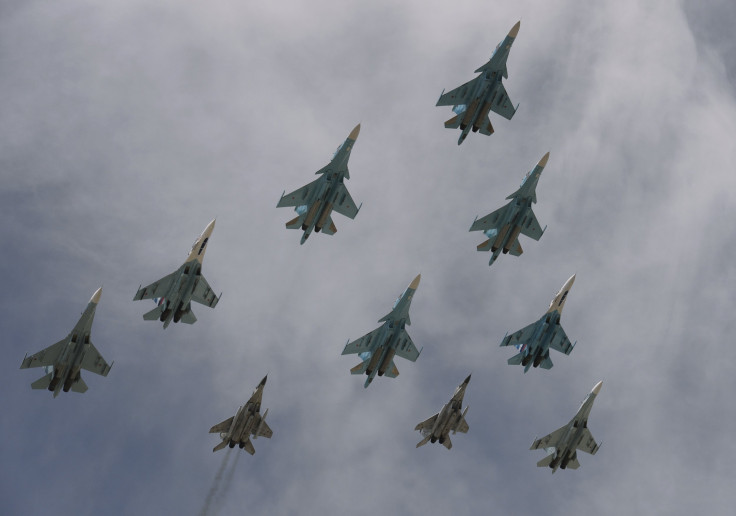Amid NATO Threats, Russia New Air Bases Could Open Across Eastern Europe And Central Asia

Russia could open new air force bases in neighboring countries, Russian Prime Minister Dmitry Medvedev told reporters Wednesday at the meeting of the heads of Eurasian Economic Union governments. Opening new bases in countries belonging to the Collective Security Treaty Organization -- a group of Moscow-influenced nations -- would allow Russia's military greater reach into Western Europe, Central Asia and the Middle East, and help it replicate the NATO line of defense on Europe's eastern front.
“As for agreements concerning the establishment of such bases, we already have such facilities … in Kyrgyzstan and Armenia, and there is no wonder in this fact,” Medvedev said at the economic meeting in Grodno, Belarus, according to a Russia Today report. "We are, in fact, ready [to make agreements on the stationing of air bases] with any of the countries with which we have alliance treaties, whether it is CSTO or CSTO Plus, like in the case of the Republic of Belarus.”
The Eurasian Economic Union is a regional group of countries that includes Russia, Armenia, Belarus, Kazakhstan and Kyrgyzstan. The Collective Security Treaty Organization adds Tajikistan to that list.
The additional air force bases, which would enable the Kremlin's jets to continue probing skies over Europe without having to worry about making it back to Russia's sovereign territory, would see far greater access to Northern Iraq, the Baltics, north and east Ukraine and central Asia. It would also put less strain on the country's aircraft. Russia lost six aircraft during a six-week period this summer, leading experts to suggest that the air force was stretched beyond its capabilities.
"The Bear bombers, for example, are designed for a single strike on missions, not for extended training flights," Igor Sutyagin, an expert on Russia at the Royal United Services Institute, told Newsweek. "The maintenance template for these vehicles does not take into account the much higher operational tempo they have been operating under lately."
© Copyright IBTimes 2025. All rights reserved.






















